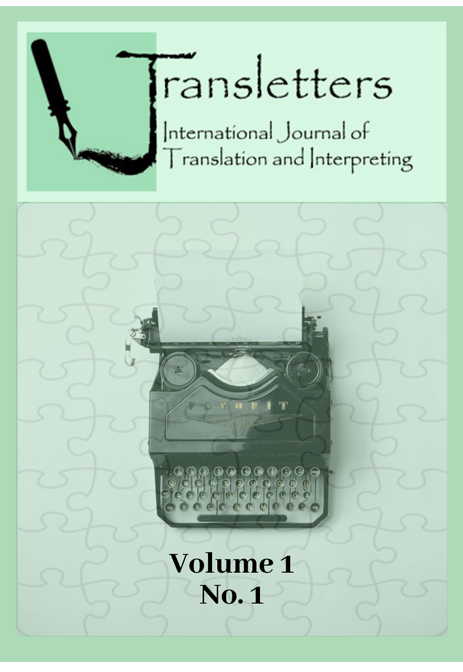The Effect of Self-Revision on the Target Text: Do Self-Revisions Deliteralise the Final Translation? A case study
Main Article Content
Abstract
This article investigates the effect of self-revision on the TT and in so doing it also tests empirically Chesterman’s (2011) deliteralisation hypothesis. It examines self-revisions undertaken in draft versions of a whole literary translation created by an experienced translator. The data analysis methodology draws on Englund Dimitrova’s (2005) and Pavlović and Antunović’s (2013) studies of self-revision. The results indicate that the self-revisions carried out by this study’s participant tend to move the TT closer to the ST, thereby literalising it. They, therefore, challenge the deliteralisation hypothesis. In view of this, more studies testing the deliteralisation hypothesis are needed.
Downloads
Download data is not yet available.
Article Details
How to Cite
Borg, C. (2018). The Effect of Self-Revision on the Target Text: Do Self-Revisions Deliteralise the Final Translation? A case study. Transletters. International Journal of Translation and Interpreting, (1), 15–36. Retrieved from https://journals.uco.es/tl/article/view/11031
Issue
Section
Articles
Proposed Policy for Journals That Offer Open Access
Authors who publish with this journal agree to the following terms:
- Authors retain copyright and grant the journal right of first publication with the work simultaneously licensed under a Creative Commons Attribution License that allows others to share the work with an acknowledgement of the work's authorship and initial publication in this journal.
- Authors are able to enter into separate, additional contractual arrangements for the non-exclusive distribution of the journal's published version of the work (e.g., post it to an institutional repository or publish it in a book), with an acknowledgement of its initial publication in this journal.
- Authors are permitted and encouraged to post their work online (e.g., in institutional repositories or on their website) prior to and during the submission process, as it can lead to productive exchanges, as well as earlier and greater citation of published work (See The Effect of Open Access).

